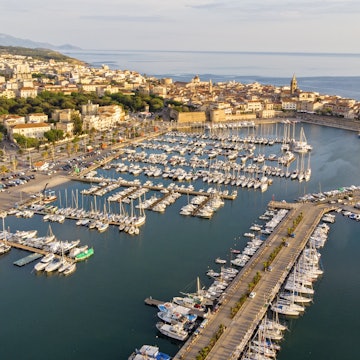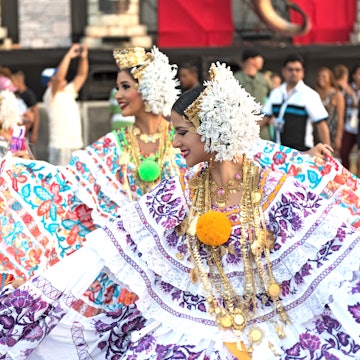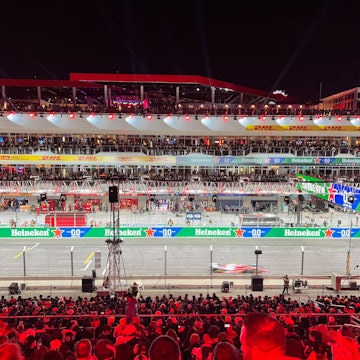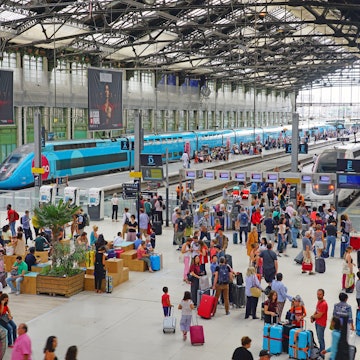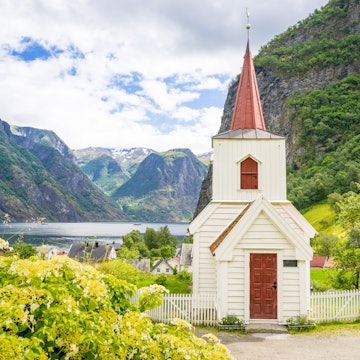

Tropical sunshine and warm temperatures make Mauritius a year-round destination. LauraVl/Shutterstock
According to Mark Twain, Mauritius was the model for heaven, and it’s easy to see what he meant. A sapphire-hued lagoon and beaches of powdery white sand wrap around an island that emerges from the Indian Ocean like the gardens of paradise. It's the perfect setting for a luxury resort escape or a more modestly priced tropical getaway, but the best time to visit Mauritius will depend on what you plan to do when you get here.
With a rugged, mountain-dotted interior, towns steeped in Indian Ocean history, and an intriguing cultural and culinary mix, this is so much more than just a world-class beach destination. There's plenty to do here – time your trip right and you could spend your days hiking to lofty viewpoints, touring historic mansions, and snorkeling, diving, surfing or fishing in the azure waters offshore.
Best of all, Mauritius can be enjoyed year-round, though the busy summer (equivalent to the European and US winter) is when most visitors come to take advantage of the blissfully warm waters of the Indian Ocean. Whether you're happy to join the crowds or prefer the quieter off-season, here are the best times to visit Mauritius.

Come from December to February for beach days, diving and colorful festivals
When it's winter in Europe and North America, it's summer in Mauritius, so the island ticks all the boxes for a perfect warm-weather Christmas or New Year escape. Yes, it can get busy, prices for accommodation and flights peak, and the occasional late cyclone is always a possibility. But the balmy temperatures and near-transparent waters are ideal for a vacation spent by, and in, the water.
Mauritius in summer is everything you’d expect from a tropical, Indian Ocean island. This is the prime time for diving and snorkeling, with excellent visibility. The water temperature can reach 26ºC (79ºF), while the temperature on land can tip 30°C (86ºF). However, humidity is high and rain showers are a possibility, though the sun soon returns.
December gets busy by Christmas, but things are calmer earlier in the month, and there are some fabulous festivals to look forward to, including the three-day Festival Kréol (try and celebrate this on Rodrigues if you can) and the Hindu fire-walking ceremony known as Teemeedee, celebrated by the island's Tamil community. Many hotels also organize lavish Christmas events for guests.
January’s early weeks are some of the busiest of the year, but the rush tapers off by the end of the month. While cyclones and storms are a possibility, fireworks are far more likely to come from the Chinese New Year celebrations in January or February, especially in Port Louis.
During February (or March, depending on the lunar calendar), some half a million Hindus make the pilgrimage to the sacred lake of Grand Bassin for Maha Shivaratri, celebrating Lord Shiva. It’s one of the most memorable cultural events on the calendar, and worth planning a trip around.

Come from March to April or October to November for low prices and Hindu celebrations
The shoulder-season months in Mauritius, from March to April and October to November, see lower prices and smaller crowds at the sights and beaches. The island still has an agreeably tropical feel, but it’s less humid than during the high season and ever-so-slightly cooler, making this a good time to explore the towns and historic mansions inland from the coast. Underwater visibility is still ideal for diving and snorkeling and the calendar is packed with festivals.
In March, the cyclone risk falls and temperatures drop, along with the cost of accommodation, including on the usually expensive east coast of Mauritius. On the festival calendar, the Fête du Poisson opens the fishing season in Rodrigues, while the colorful Hindu celebration of Holi sees everyone getting doused with water and colored powder (some years, it can fall in late February).
The Easter holidays in late March or early April see another wave of sunseekers arrive in Mauritius, while Hindus celebrate the Tamil New Year in April with temple rituals and much merrymaking in Mauritian towns, and themed dinners and cultural performances in many hotels.
October could just be the best time to visit Mauritius for perfect holiday weather, with a hint of tropical warmth in the air, but little risk of rain or cyclones. The island’s Hindus celebrate Divali (Dipavali), the Tamil Festival of Light, in late October or early November. Fireworks pop and oil lamps are lit to welcome Lord Rama home from exile and celebrate the victory of good over evil.

May to September is the time for low prices, smaller crowds and surfing
The low season in Mauritius – coinciding with the European and American summer – is cooler, cheaper and almost as appealing as visiting during the more popular months. So long as you avoid the European (especially French) school holidays, it can be lovely and quiet, with few other travelers around.
The slightly cooler temperatures are ideal for exploring inland from the beach, and there's more availability – and often discount deals – at hotels and resorts. If there’s a downside, rougher seas can reduce visibility for divers and snorkelers.
May and June are quiet months on the cultural calendar, though many French families arrive to take advantage of the school holidays. By July, Mauritius settles into its usual winter pattern of mild temperatures, clear skies and choppy seas that are better for surfing and windsurfing than for exploring the underwater world.
At the end of July, kitesurfers make their way to the renowned Rodrigues International Kitesurfing Festival. which has been running since 2013. You can look forward to the best of the low season in August, when you’re almost guaranteed to see very little humidity and rain, combined with pleasant temperatures.
Many regular visitors will tell you that September is another good time to visit Mauritius; if you’re anywhere near Port Louis on 9 September, head to Père Laval's Shrine on the city outskirts for one of the biggest celebrations of the year for the island's Christians.





